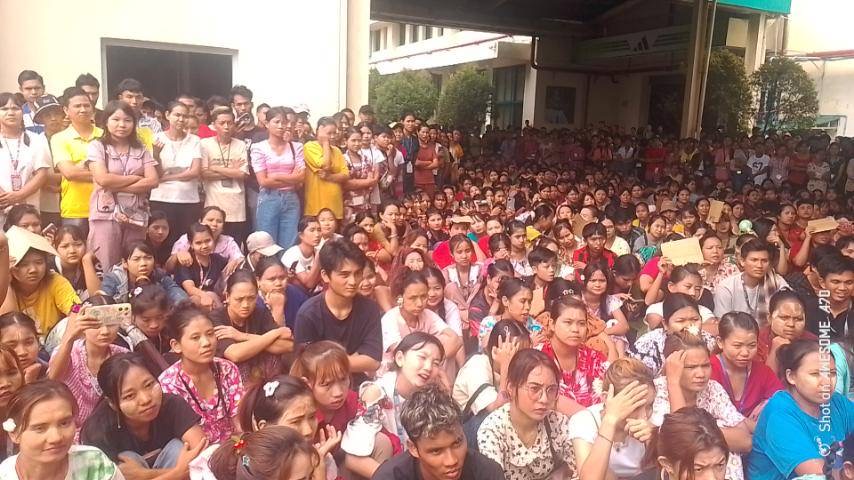Thousands of garment workers seeking to boost a base daily pay of $2.47 (5,200 kyats) stood strong throughout a multi-day strike in Yangon, Myanmar, winning an agreement that increases pay and bonuses.
Marching along the sidewalk outside the factory chanting “daily wage, annual bonus, raise it, raise it,” and “the daily wage you pay is not enough,” striking garment workers negotiated a new wage they say will make it easier to purchase rice and cooking oil.
The agreement, effective in June and covering 6,269 workers, increases the base pay to $2.76 (5,800 kyats), boosts the additional daily allowance to $1.81 (3,800 kyats) from 95 cents (2,000 kyats) and a 19 cent (400 kyats) allowance. Garment workers also will receive an increase in overtime pay and attendance bonus pay.
With Collective Action, Workers Achieve Success
Unable to support themselves on their wages, some 4,000 workers at the Tsang Yih Co., factory went on strike May 14, and were joined by thousands more the next day. Workers remained on strike despite management threats to fire leaders. On May 17, management said the factory, which supplies Adidas, can dismiss them for three consecutive days of absence and told striking workers the company would bring in military soldiers and police.
The garment workers, assisted in their effort for better pay by the Federation of General Workers of Myanmar (FGWM), a Solidarity Center partner, continued the worker action, defying the risks involved in the country. In February 2021, a military coup took power, killing thousands of people and imprisoning many more, with union leaders especially targeted.
After management created a contract without workers’ consent that did not reflect their list of demands, the garment workers remained united in collective action. With military and police trucks at the factory’s entrance on May 19, 6,000 workers rallied inside the factory compound, chanting that the signatures on the “agreement” did not reflect their wishes.
When the Myanmar Labor Minister and other representatives came to the factory urging workers to return to the job, workers say the messages indicated force would be used to disperse them if they refused to resume work.
But with strength through collective action, the garment workers held strong, succeeding in negotiating a contract that benefited them and their families.

